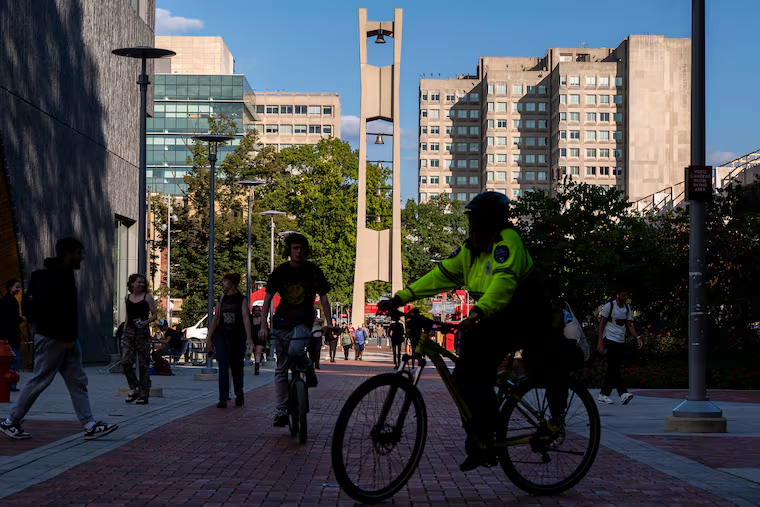Should Temple make public the finalists for the president’s job?
Although some faculty want it, the board chair says it would deter high-quality candidates from participating

Some Temple University faculty think the school should make public the names of finalists for the president’s job, given that the last leader chosen through a search resigned less than two years on the job.
They pointed to Bucks County Community College, which brought three presidential finalists to campus and made their names public before, last month, choosing Patrick M. Jones, a professor of music and chancellor of Penn State Schuylkill. The University of Minnesota in February announced the names of finalists for its president’s post. And both Indiana State University and Tennessee State University announced the names of finalists for their top jobs last month.
The University of Arizona did so last month, too, for its provost job.
“The consequences of the actions are too dire, too worrisome, to just say we trust you to do this,” said Steve Newman, an associate professor of English. “We don’t, because of the track record.”
» READ MORE: Temple officially launches the search for its next president
Temple’s last president, Jason Wingard, resigned last March amid concerns about his handling of a 42-day graduate student worker strike, dropping enrollment, campus safety, and overall leadership. JoAnne A. Epps stepped in as acting president but died suddenly in September after becoming ill on stage at a university event. Richard M. Englert, who had been president previously, is currently in the role again.
Mitchell L. Morgan, chair of the board of trustees, said the search advisory committee, which he is on, decided against making the finalists’ names public.
“We believe, based on advice from our professional search firm and input from candidates, it tends to dissuade the best prospects, who frequently hold current senior positions at other institutions and rely on confidentiality in deciding to participate in the search,” he said.
The university’s search advisory committee said in a statement this week that it was on track to name a new president this spring and had “unanimously narrowed the pool to a very small group of highly qualified individuals.”
Most local universities that have gone through recent presidential searches have not publicized the names of their finalists, concerned that it may deter some high-quality candidates who fear that it would jeopardize their current jobs. Nationally, the picture varies.
» READ MORE: What does the Temple community want from its next president? Here’s what to know from a new report.
A senior partner at the search firm WittKieffer, which is not involved in Temple’s search, recently wrote in the Chronicle of Higher Education that 34% of searches the firm conducted over the last four years were open, meaning finalists’ names were announced publicly. The majority, wrote Ryan Crawford, were at public institutions where state law requires that finalists meet with the campus. (Temple is only partially public and not fully subject to Pennsylvania’s Right to Know law.)
One-quarter of WittKieffer’s searches were closed, meaning that only the search committee knew their identities. And the rest were a hybrid in which finalists met with select groups of faculty, students and others who promised confidentiality, he wrote.
At Temple, several finalists have met with a handful of employees from enrollment, safety, and other areas who are not on the search committee, Morgan said. Those employees signed confidentiality agreements.
But Jeffrey Doshna, president of the Temple Association of University Professors, the faculty union, said more widespread disclosure was needed.
“We need transparency in the process,” he said. “There should be open sessions where they can talk to the full breadth of the university community.”
Newman and fellow tenured Temple professors Mohammad F. Kiani and Eric Borguet said they also are concerned that some of the same trustees who selected Wingard are on the search committee again, and that of the 17 committee members, 10 are trustees. Members of the Temple faculty union a year ago voted no-confidence in Morgan, as well as provost Gregory N. Mandel.
Two deans, the president of student government, and two professors, including Shohreh Amini, president of the faculty senate, are among others on the committee.
The university is using Spencer Stuart, an executive search firm that led presidential searches at the University of Pennsylvania, Pennsylvania State University, and Loyola University Chicago. It also has hired a second firm, the Collective Genius, to hold in-person and virtual meetings with faculty, students and other key stakeholders to get input on what skills and experience the next president should have.
The Temple community wants an experienced leader with a passion for higher education and a strong commitment to teaching, research, and service, according to Collective Genius, which released a “University Voices” report in November.